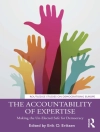Translated into English for the first time after its publication in 1967, Ghassan Kanafani’s On Zionist Literature makes an incisive analysis of the literary fiction written in support of the Zionist colonization of Palestine.
Interweaving his literary criticism of works by George Eliot, Arthur Koestler, and many others with a historical materialist narrative, Kanafani identifies the political intent and ideology of Zionist literature, demonstrating how the myths used to justify the Zionist-imperialist domination of Palestine first emerged and were repeatedly propagated in popular literary works in order to generate support for Zionism and shape the Western public’s understanding of it.
The new preface by Anni Kanafani and an introduction by Steven Salaita place On Zionist Literature in its broader historical context and make a compelling case for its ongoing significance more than five decades since its original publication, illustrating the extent to which ‘Kanafani was a searing and incisive critic, at once generous in his understanding of emotion and form and unsparing in his assessment of politics and myth.’
Зміст
Translator’s Foreword by Mahmoud Najib
Introduction by Steven Salaita
Preface to the 1967 Edition by Anis Sayegh
Preface by Anni Kanafani
Introduction
1. Zionism Fights on the Linguistic Front
2. The Birth of Zionist Literature
3. Race and Religion in Zionist Literature Beget Political Zionism
4. The Birth and Development of the Character of the Wandering Jew
5. Zionist Literature Marches in Lockstep with Politics
6. Jewish Infallibility and the Unworthiness of Other Peoples
7. Zionist Rationalizations for the Usurpation of Palestine
8. From the Nobel Prize to the 1967 Aggression
Про автора
Ghassan Kanafani is regarded as one of the most well-known Arab writers and journalists of the past century. Born in Palestine in 1936, Kanafani and his family were forced to flee his homeland during the Nakba – after which he lived and worked in Damascus, Kuwait and finally, from 1960, Beirut. Kanafani was martyred on July 8th, 1972, along with his niece Lamees, in a car bomb planted by Israeli agents. His writings have inspired entire generations of Palestinians and those in solidarity with their cause.












